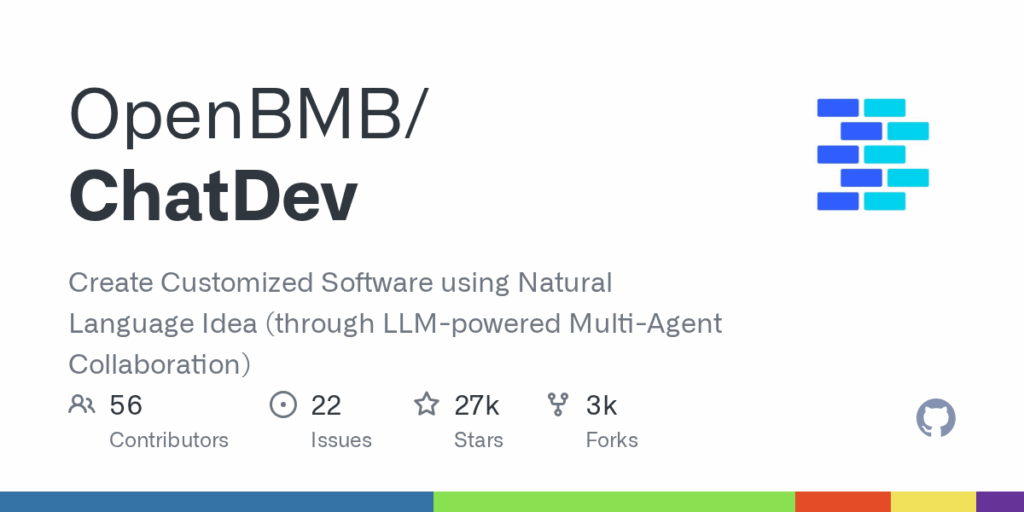ChatDev
Basic Information
ChatDev is a framework that simulates a virtual software company composed of multiple LLM-driven agents that collaborate to design, implement, test and document software. The repository provides an extendable, configurable platform for orchestrating role-based agents such as CEO, CPO, CTO, programmers, reviewers, testers and designers to work together on a software task described in natural language. It targets researchers and developers who want to build or study multi-agent collaboration workflows and to automatically generate runnable software projects. The system produces complete project folders with source code, logs and prompts and supports visualization, replay, customization of agent roles, phases and chat chains. It is presented as both a research platform for collective intelligence and a practical tool to prototype software via LLMs.








